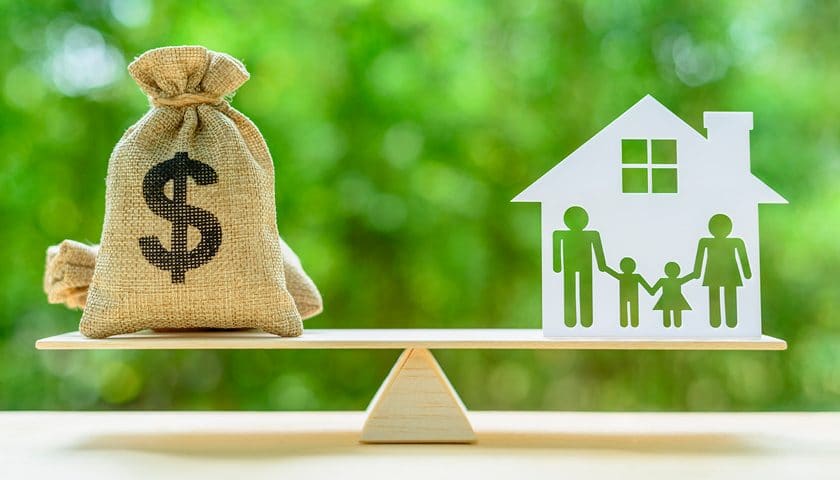Buying a home is one of the biggest decisions we make in our lives. There are many things to consider before making a decision. Since this is a considerable investment, the upfront payment for the purchase is complex. So, we seek shelter from home loans. Then we insist on equal monthly instalments (EMI) for a long time. Is it worth paying EMI and owning your own house, or is it better to live in a rented house?
The most common argument for EMI is that you would rather pay rent to EMI and own the asset simultaneously. It sounds simple, but we think there are more points you should consider before buying a home.
Benefits of Owning a Home
As the Reserve Bank of India cut repo rates, this has led to home loan rates falling below 7%, compared to 8-9% a year ago.
- Tax Benefits
In addition to owning assets, you can also get income tax benefits. Your home loan principal repayments are eligible for a deduction under Section 80C.
This means you can make better use of the full deduction allowed. Also, the interest of up to Rs 2 lakh can be deducted from your income. In the case of a joint home loan, both spouses are eligible to claim deductions of up to Rs 2 lakh if both parties repay the loan equally.
- Capital appreciation
During the real estate boom from 2002 to 2013, capital appreciation in some areas was 6-10 times. Although percentages may vary, real estate investments do appreciate over time. When sold after three years, an index gain is available, and the gain is only taxed at 20%.
- An Additional Source Of Income
If not self-occupied, you can rent it out at any time. Rental income can be used to pay EMIs or fund part of your EMIs.
- Reverse Mortgage
Get a much-needed income stream by setting up your home as a reverse mortgage during your prime.
- Flexibility
This is the age of career awareness. Job changes happen quickly. You don’t want to be tied to your hometown or region. It probably doesn’t make much sense unless you decide to settle down and have a home.
- Lower deposits than down payment
Renting requires you to pay a security deposit of 6-10 months. But the down payment to buy a property is usually between 15-25% of the cost of the property, which is equivalent to several lakh rupees.
House Rent Allowance (HRA) benefits: If salaried employees pay rent, they can request a waiver of the HRA tax paid as part of their wages. Remember, this benefit is not available to people living in their homes.
- Low maintenance costs
Owned houses require regular maintenance costs, including painting, repairs, etc., and tenants only need to bear a small maintenance cost. Homeowners must pay property taxes and incur other costs such as registration fees, stamp duty, etc.
Due to variables such as size, amenities, location, etc., EMI means a person pays much more per month for their dream house than the monthly rent. Also, EMIs may pay you high loan interest, and you may sometimes have to compromise on the quality of life. With a 20% down payment and an 80% loan, you realise that you will pay the bank more in interest than the loan costs.
In short, living in a rented home won’t expose you to a higher EMI burden. Best of all, you always have the option to change your location and move to an area further away from offices, hospitals, shopping malls, etc. Also, you can afford to live in an upscale place. The value of rental apartments is relatively low, so renting is a natural first choice to a certain extent.
Learn The Equation of Paying EMI vs Rent
Affordability is the key difference. When you take out a loan to buy a home, you already know the EMI you will have to pay in the long term. Let us take the example of real estate in Bengaluru. Suppose its current market valuation is around Rs 50 lakh. If a person decides to buy or rent a property, this is how the decision unfolds.
Rent Case
If one decides to live in this property for rent, the direct cost to the tenant will be around Rs 12,000-14,000 per month. This fee will increase after 11 months. As a result, people may have to move to a different location each year to maintain rents or maintain year-over-year growth of about 5-10%. Of course, wages will also increase, but we must consider inflation.
Buying Case
When buying a home loan (20% down payment, 80% loan), EMI costs Rs 32,000 per month (7.25% for 20 years). If you can put down a 50% down payment, the EMI will be around 20,000.
Also, in this case, the individual does not have to worry about the property price going up because, despite the property appreciation, the cost remains the same throughout the tenure.
Undoubtedly, renting has advantages, such as flexibility and lower monthly payments. Renting has its perks – flexibility to change where you live, HRA, better home, lower monthly expenses, etc. On the other hand, buying a home gives a sense of satisfaction and pride in ownership. Your EMI is building the asset for you. It provides more satisfaction, but only when done at the right time. A purchase is an important milestone, but one must be prepared for it and save. Otherwise, severe EMI may affect the quality of life.






